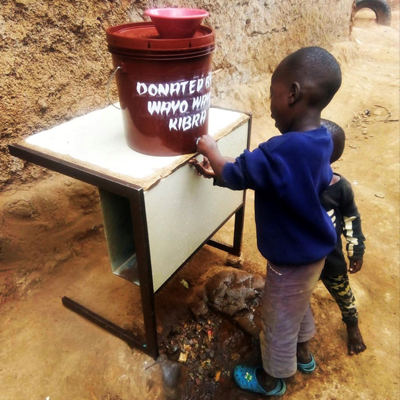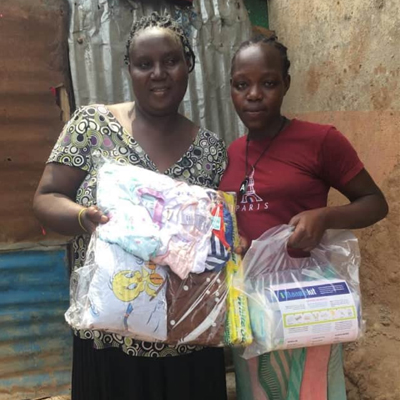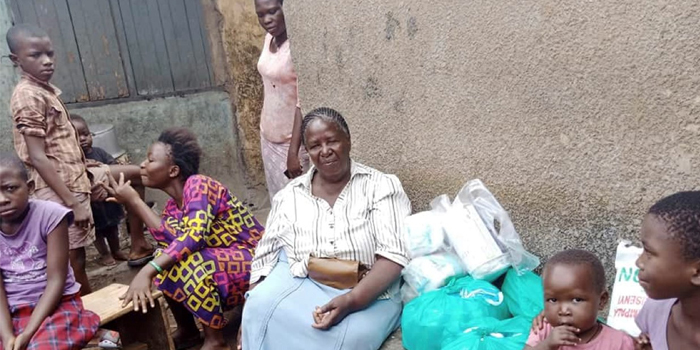
As a company and employer, By Rydéns plays an important role in society, which we take very seriously. Our social commitment embraces ecological as well as social and economic areas. It is therefore natural for us to support measures that benefit our company as well as the world around us. For several years now, we have been proud supporters of the Gnosjo Global Association, a non-profit organisation that operates internationally. The organisation is committed to health, saving lives, fighting poverty and strengthening endangered areas. You can read more about their commitment and projects over the past year in our newsletter.

We knew that 2020 was going to be an unforgettable year; that this would be due to a pandemic and a completely different way of life did not really sink in until late spring. That a small virus invisible to the eye would cause the entire world population to change their routines, create new forms of interaction, influence the climate and cause so much grief and death is both frightening and fascinating.
We have learned about concepts such as herd immunity, social distancing, staying home when you have a cold, and we have dropped the handshake. We in the health and social services sector had to work hard and, like most other industries, had to adapt quickly to new routines, new jobs, tasks and conditions, which was also useful and instructive. We are all affected both in our professional and private lives. We learned so much, even when it was boring, sad and scary.
From a global perspective, we have of course had good conditions in the Western world, as usual. However, we are not used to having a disease surrounding us that we do not know everything about; there are no answers, no cure or vaccination. In many other parts of the world such a threat is permanently present.
For Gnosjo Global it has obviously meant a real readjustment. We were still traveling to Kenya and Uganda in February, when the virus was already on the news in China, but neither we nor anyone else thought at that time that it would spread worldwide. We visited the clinic in Nairobi – the Kenswed Hospital, met our friends and "protégés", distributed the scholarships that we wanted to give to young people who needed support in the form of school fees, survival support or as a start for entrepreneurship. We also went back to Uganda and visited the young girls who live in The Fortress, the house where they are waiting to give birth, visited maternity clinics and women's groups there to support them with education, hygiene products and in some cases rent payments.
The planned spring trips to the Philippines in March with Operation Smile were cancelled within a few days. All their international teams and projects are still on hold or suspended. Local volunteers are supporting the countries in the fight against corona, but are concentrating on support in the form of survival assistance, i.e. nutrition, hygiene and basic medical care. Our big mission to Cambodia, where we planned to visit many schools and girls groups to provide education in body, hygiene and health, has also been suspended and is now postponed indefinitely.
Unfortunately we cannot plan any further international trips at the moment. The situation is too uncertain for that, and we do not want to risk contributing to an increased spread of infections in countries where healthcare is already under strain.
All the countries we usually travelled to were hit very hard by the consequences of the corona pandemic, not in the form of diseases and high death rates as in the Western world, but because schools were closed and curfews and transport bans were imposed on all inhabitants.
Governments have closed entire cities, shut down all public transportation, and closed schools and public places. And this in countries and areas where few have the opportunity to learn from home, no one has an internet connection, a computer or even access to running water, to drink or even to wash their hands regularly. Most people are day labourers, which means they are paid for their work on the same day. If they cannot or are not allowed to come to their job, or cannot sell what they have grown, they do not receive any money. No money, no food, no rent or medicine. People are now starving and dying of other diseases. The families live in very confined spaces, with up to twenty people in one small room. What applies to us in the West – staying at home – leads to increased risks of infection with other diseases and to a difficult living situation.
We have tried to help and support with money so that they can buy food packages, we have set up hygiene stations and helped with the rent. Those who already suffered from bad conditions are now even worse off. It hurts not to be able to go there and help on site. The Kenswed Hospital, which we support and with which we have worked closely, is continuing its maternity care. Several new babies were born at the hospital during the year. We continue to participate by providing regular counselling in the medical group. The local staff have carried out health examinations and information campaigns and, not least now in corona times, have provided a lot of help and care and have spread information. We are in constant contact with the management and are now working hard to get an ambulance for the clinic to make childbirth even safer.
Here in the office we have been working on some teaching materials that we will be using the next time we go out into the world. We will continue to work on them in the fall, and that feels good! GGA would like to thank its members, monthly donors, sponsors, and all those who support us as we collect donations! Things didn't turn out quite as we thought, but after we caught our breath here at home, we will also take away something new and good from this time!
// Monica Hellström, founder and initiator of the Gnosjö Global Association

